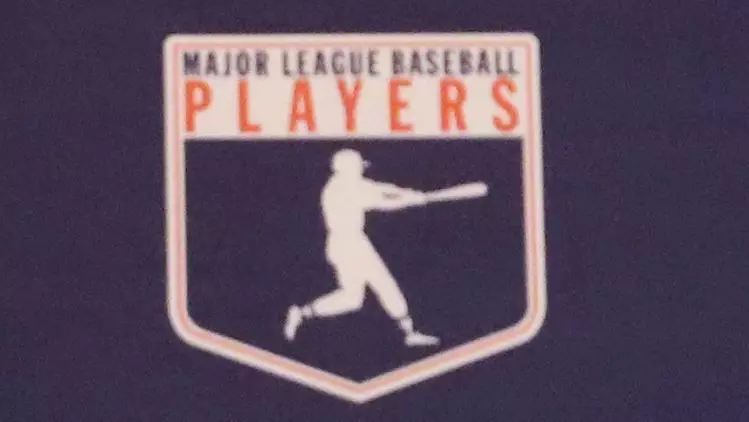In an unprecedented turn of events, the FBI has shifted its focus onto the intricate financial dealings within OneTeam Partners, a multibillion-dollar licensing agency that embodies the collaboration between Major League Baseball Players Association (MLBPA) and National Football League Players Association (NFLPA). Established in 2019 as a means to leverage athletes’ economic potential, OneTeam Partners has drawn substantial attention lately, particularly due to law enforcement inquiries directed at key players who are familiar with the organization’s inner workings. Reports suggest that the FBI is not targeting these players, but rather seeking insights into the financial operations that may be shrouded in ambiguity.
This inquiry raises critical questions about the accountability and governance standards within unions that represent some of the most powerful athletes in professional sports today. With a partnership including various other athletic organizations, including women’s basketball and soccer athletes, OneTeam has rapidly expanded its reach—ultimately valued at $1.9 billion after securing major deals and investments.
Financial Fortunes and Ethical Scrutiny
While OneTeam Partners has turned into a financial goldmine for its affiliated unions, amassing nearly $160 million for the MLBPA alone from 2020 to 2024, ethical concerns linger like an ominous cloud over its operations. Allegations of “nepotism, corruption, and mismanagement” have emerged, spotlighting OneTeam’s governance structures and practices, as well as questioning the integrity of its appointed leaders. In 2024, the National Labor Relations Board (NLRB) received an anonymous complaint that took aim at MLBPA Executive Director Tony Clark, suggesting that he improperly awarded himself and other executives equity stakes in OneTeam without proper disclosures.
Such conflicts of interest are troubling, undermining the trust that players and their fanbases place in their unions. This is especially acute considering that Clark, who boasts a significant history as a former player, now sits at the helm of the MLBPA, a position that holds immense responsibility for not just finances, but also for upholding the rights and welfare of the players he represents.
The Ripple Effects of an Investigation
With the FBI’s investigation unfolding from the Eastern District of New York, the potential ramifications extend beyond the unions and players directly involved. The close-knit world of professional sports thrives on reputation, and any findings could dramatically impact public perception of both the MLBPA and NFLPA. Questions regarding how player earnings are distributed and whether transparency is prioritized may incite intense scrutiny that can broadly affect player contracts, endorsements, and even fans’ loyalty to the leagues.
Moreover, player leadership, having recognized the gravity of the investigation, has sought separate legal counsel. This separation indicates a palpable acknowledgment of potential fallout, heightening the already existing tensions regarding transparency and ethical governance within the sport.
The Economic Backbone: OneTeam’s Financial Impact
The financial engine that OneTeam represents cannot be understated. As it monetizes player likeness and strives to secure lucrative deals with media companies, its partnerships have bolstered the financial health of the unions significantly. For instance, the NFLPA has reported a whopping $422.8 million in income from the partnership over the last five years, reflecting its essential role in providing financial security for its members.
Nonetheless, the real value of these earnings goes beyond financial metrics. They symbolize the power and influence of modern athletes, asserting their rights to their own images and marketability. Yet, with power comes responsibility; the scrutiny surrounding OneTeam serves as a wake-up call, urging unions to adopt best practices and ethical standards that genuinely reflect the principles of fairness and transparency.
A Call for Ethical Rigor
As we witness these investigations unfold, there’s an undeniable imperative for both the MLBPA and NFLPA to reinforce their commitment to ethical practices and transparency. While the partnerships that have propelled these organizations to immense financial heights cannot be dismissed, the ultimate goal should center around the well-being of the players they represent.
The seat on the board that Tony Clark holds at OneTeam exemplifies the overlapping interests that can sometimes lead to ethical blind spots. The unions must prioritize a governance model that is not only compliant with legal frameworks but is also built on accountability that resonates with their members. After all, the legacy of a union isn’t measured solely by its financial prowess but by how faithfully it advocates for the players’ rights and livelihoods.
The FBI’s investigation highlights an opportunity, rather than solely a threat, for unions to reassess their operational integrity. As athletes continue to navigate a landscape rife with financial opportunities, accountability should remain at the forefront of any strategic endeavor. This is the juncture where loyalty meets ethics—a crucial intersection that, if properly navigated, promises to elevate both the sport and its athletes.


Leave a Reply